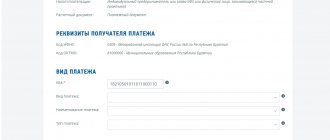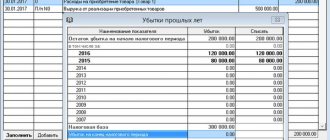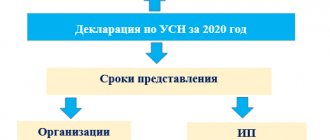It is difficult to find this type of business where a car is required. This includes various transportations, delivery of goods or passengers, and finally, a car is needed to quickly solve management and other operational tasks. Therefore, the question of whether it is possible to register a car to an individual entrepreneur often arises, since an individual entrepreneur without a car is literally like without hands, which means that you need to choose the most suitable option for registering your vehicle.
Features of tax regimes: what does an entrepreneur need to know when buying a car?
After registration, an individual entrepreneur is not an ordinary individual, but an entity running his own business who:
- opens current accounts;
- pays taxes;
- takes out insurance;
- reports to tax authorities.
If an individual entrepreneur purchased a car for business activities, then it becomes an element of taxation. However, this process has its own characteristics, depending on the form and methods of purchase.
- If during state registration a person chose a simplified taxation system (STS Income minus expenses), then the purchased car can reduce the amount of tax payments.
This opportunity is valid if the vehicle was purchased for business purposes, which can be documented. After purchase, tax payments and car maintenance costs will be added to the expenses. - If the entrepreneur is on the general taxation system (OSNO), then it is important to perform the following steps:
- write an order in your name, stating that the vehicle is used exclusively for work and not in everyday life;
- When using a car, issue waybills, which will prove that the entrepreneur owns the car for business purposes.
In fact, choosing OSNO is inconvenient for individual entrepreneurs, since after purchasing a car many questions and tasks arise regarding how to include the cost of a car in expenses.
Registration of a car allows an entrepreneur to use it for his business and document expenses spent on operation in the vehicle maintenance category. This reduces the number of tax objects in which all payments are recorded.
For an individual entrepreneur, vehicle registration occurs in accordance with the general rules provided for individuals. However, there are no serious conditions for the vehicle to be used only for delivery or transportation, so it is possible to drive to perform other main activities.
In this case, all funds that will be spent on gasoline, oil, repairs and other automotive operations can be recorded as service and transportation expenses.
For reporting, the individual entrepreneur must bring supporting documents to the accounting department: receipts for payment for gasoline, use of paid parking, service stations, etc.
If a merchant bought a vehicle as an individual
An individual entrepreneur is an individual who is registered in the manner prescribed by regulations and carries out entrepreneurial activities. According to Art. 212 of the Civil Code, an individual entrepreneur is not a subject of property rights. Thus, the purchase of a vehicle is always for an individual.
The main difference arises when the purpose of using the car is determined. When operating a car for personal purposes, the individual entrepreneur does not report to the tax office the expenses for the vehicle, and on the income received from the sale he pays only 13% of personal income tax. For more information about whether you need to pay personal income tax and in what cases and how to reduce the amount or avoid the contribution, read this material.
The vehicle certificate can contain information that the owner of the car is an individual entrepreneur. For this purpose, the document contains a column “Special notes”.
Transport tax under OSN
The general system is considered extremely unprofitable for small businesses due to the heavy load:
- In addition to personal income tax, entrepreneurs must pay VAT and many other taxes, and for each of them a declaration is submitted to the Federal Tax Service.
- There is an obligation to maintain a cash book and correctly register all cash transactions if a cash register is installed. The only advantage of OSN is the possibility of cooperation with counterparties who work with VAT. In most cases, the use of OSN is considered unprofitable.
The simplest system for individual entrepreneurs is the patent system. If the regional authorities allow transportation under a patent, it is enough to purchase it for a period of up to 12 months, and then you will not have to report to the Federal Tax Service in the form of submitting declarations. What other features are there:
- Personal income tax and VAT are not paid if there is a patent. Instead, the tax is calculated based on the estimated income in accordance with the type of activity for the period of validity of the patent. The general rate is 6%.
- To acquire a patent, the number of employees should not exceed 15 people, and the entrepreneur’s income should not exceed 60,000,000 rubles. in year.
- A book of income and expenses must be kept - only in this case the rules for maintaining cash registers are similar to the rules applied for individual entrepreneurs on the simplified tax system.
Attention! To switch to PSN and buy a patent, you need to contact the Federal Tax Service at the place of registration with a corresponding application.
Step-by-step instructions for registering a purchased vehicle
Individual entrepreneurs who purchased a vehicle to run their own business must perform a number of actions in accordance with the regulations of the Ministry of Internal Affairs of Russia No. 399.
List of documents
First of all, to register your car you need to collect a package of documents:
- passport of a citizen of the Russian Federation;
- technical passport of the vehicle;
- car purchase and sale agreement;
- OSAGO policy;
- statement;
- receipt of payment of state duty;
- statement.
The entrepreneur must make copies of all papers, as they must be submitted to the accounting department. On an individual basis, additional documents may be required, as well as license plate numbers for the car when they are changed.
Where to submit?
Vehicle registration takes place at the regional MREO traffic police department. Before visiting, it is advisable to make an appointment in advance by phone, on the State Services website and the official inspection portal.
The traffic police will need to perform the following manipulations:
- provide the employee with all documents;
- undergo a vehicle inspection;
- receive an inspection mark and fill out an application.
After some time, you need to come to the same organization and pick up registration documents.
Cost of the procedure
The cost of documentation is regulated by the Tax Code of the Russian Federation. In 2021, the state duty is:
- for issuing new license plates for vehicles - 2000 rubles;
- for issuing PTS - 800 rubles;
- for making changes to the PTS - 350 rubles;
- for issuing STS - 500 rubles.
When buying a used car, it is not necessary to change the previous license plates, then the financial costs will be reduced (how to keep the previous license plates when selling and buying a car?). Registration will also cost less if you use the State Services service for registration - the discount on the fee will be 30%.
Let's sum it up
There are many nuances in registering a car for an LLC. They must be taken into account when concluding a contract. If an organization wants to offset VAT, then when buying a car from an individual, it makes sense to involve an intermediary in the transaction.
Our lawyers know the answer to your question
If you want to find out how to solve your particular problem, then ask our duty lawyer online. It's fast, convenient and free!
or by phone:
- Moscow and region: 7-499-938-54-25
- St. Petersburg and region: 7-812-467-37-54
- Federal: 7-800-350-84-02
Registration of a car or other vehicle with the State Traffic Safety Inspectorate can be carried out by both an individual and a legal entity. In general, the process is no different, it’s just that when registering as a legal entity, you must additionally attach the statutory documents of the legal entity and a power of attorney for the employee who will directly carry out the registration actions.
Both a company (LLC, JSC, etc.) and an individual entrepreneur (IP) can register a car. The package of documents will be similar.
Features of payment: by bank transfer and in cash
Paying for the purchase of a car by bank transfer is the most acceptable option. A vehicle is an expensive product, so it is risky to carry large amounts of cash. But it is worth remembering some features:
- When paying for a purchase using your card, a fee may apply. Even a small percentage is not beneficial to the car seller, so he will insist on paying in cash.
- When transferring money through a current account, the bank charges a commission from the buyer.
You can buy transport by transferring money from the current account of an individual entrepreneur, but it is worth considering the purpose of the purchase: for personal use or for work, since any expenses and income are monitored by the tax organization.
With the first option, it is better to make payment through a personal account. Often, when paying in cash, a car dealership offers customers a good discount, and even with this payment method, the purchase occurs quickly and without delays.
An individual entrepreneur is allowed to use cash in the following situations:
- payment of salaries;
- under report;
- insurance premiums;
- personal needs;
- payment for contractor services;
- refund;
- payment of money to the paying agent.
The purchase of a vehicle can be included in the category of personal needs. To do this, you will need to issue a sales and cash receipt.
Differences between leasing and lending
There are several key differences that can help you decide which service to choose.
| Leasing | Credit | |
| Participants in the operation |
|
|
| Ownership | Until the debt is fully repaid, the vehicle is the property of the leasing organization | The vehicle becomes the property of the loan recipient, but there are restrictions on use |
| Application processing time | 1-5 days | 15-60 days |
| Package of documents | Minimum package, since the vehicle remains the property of the lessor, thereby minimizing its own risks | Large package, including confirmation of financial status, income stability, guarantee |
| Additional expenses | Any financial expenses: insurance, state registration, maintenance are offered by lease. company with discounts up to 10%. All expenses can be included in the monthly payment under the contract | All costs are borne by the loan recipient |
| Contract term | From 1 to 5 years | From 1 to 3 years |
| Pledge | Not required | The car itself acts as collateral |
Registering a car to a business entity: pros and cons
The advantage of purchasing a car as an object for business activity is that an individual entrepreneur located on OSNO has the right to issue a VAT refund. Also, a car is a tool for conducting business, so expenses on it can be counted as business expenses.
The downsides:
- maintaining waybills;
- collection of checks, receipts and contracts related to vehicles;
- inability to obtain a VAT refund from individual entrepreneurs working under the simplified tax system and single taxation system.
An individual sells a car used in business activities
For government agencies, there is no fundamental difference in who sells the car, so the entire stage of selling a car is the same for both individual entrepreneurs and individuals.
- The first step is to place an advertisement for the sale of a car with an accurate description and price.
- When a candidate for the purchase of a vehicle is found, it is required to arrange an inspection of the car.
- Next, a deal is concluded, a purchase and sale agreement is drawn up and the documents are transferred to the new owner.
If the car was used for personal purposes, the individual entrepreneur must pay personal income tax in the amount of 13% of the sale amount. An individual entrepreneur who used a vehicle for a commercial purpose must report to the accounting department and pay personal income tax (13%) and VAT (20%).
Such taxes are relevant for an entrepreneur working under OSNO. If he makes payments to the state treasury according to the simplified taxation system, then the person must include income in the tax base to calculate the fee in the amount of 6% or 15% of the “Income minus expenses” scheme. When using UTII, an individual entrepreneur pays tax in the form of a fixed amount on profit, calculated individually.
After selling the vehicle, you need to draw up a declaration in Form 3-NDFL and report to the tax office no later than April 30 of the following year. The form can be filled out electronically or by hand. If the individual entrepreneur is late, he or she faces a fine of 5% of the unreported amount. According to the letter of the Ministry of Finance of the Russian Federation No. 03-02-07/1/3242, the fine cannot be less than 1000 rubles and more than 30% of the specified amount.
How are payments made under the contract?
A leasing agreement, as a rule, provides for 4 types of payments (although this division is rather arbitrary):
- Advance payment;
- Commission;
- Monthly payments;
- Redemption payment.
Payment schemes:
- Annuity – the same amount of monthly payment throughout the entire term of the contract;
- Differentiated - a different amount of monthly payment during the term of the contract (by reducing interest on the amount of the principal debt).






